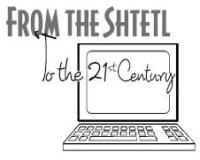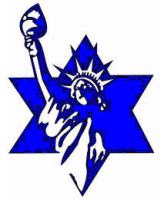Seeing this program with the mention of the Library of Congress’ Hispanic Division reminded me of an incident quite a number of years ago.
Our daughter was going to visit one of her friends, who was studying Spanish in Seville. The two were planning to visit, among many other places, a town near Zaragoza which might have had a connection to our family’s Sephardic ancestry.
I called the LOC and spoke to a very helpful young man in the Hispanic Division, and gave him the name of the town. He looked it up in an 18th century gazetteer, and among other interesting items, it noted “Hay muchos lobos y zorros” (there are many wolves and foxes).
When daughter and friend took a taxi out to the village from the city, the driver told them to be careful because “hay muchos lobos y zorros.” The two students, of course, were rather amused, and the driver was understandably confused.
The more things change, the more they stay the same.
In any case, “Jewish-Latin American Historiography: The Challenges Ahead” is the May 17 lecture at the LOC. An increasingly popular area of academic inquiry, many institutions are offering related classes.
History professors Raanan Rein and Jeffrey Lesser will present the free joint lecture at noon, Monday, May 17, in the Mary Pickford Theater, (third floor, LOC’s James Madison Building, 101 Independence Ave. SE, Washington, DC).
It is jointly sponsored by the Library’s Hispanic Division and the Hebrew Language Table in cooperation with the Embassy of Argentina and the Embassy of Israel. Reservations are not required.
Tel Aviv University’s Raanan Rein is the Sourasky Professor of Latin American and Spanish History and head of the S. Daniel Abraham Center for International and Regional Studies. Author and editor of more than 20 books and several dozen academic journal articles, he’s co-president of the Latin American Jewish Studies Association and a member of Argentina’s National Academy of History.
Emory University’s Jeffrey Lesser is Samuel Candler Dobbs Professor of History and director of the Tam Institute for Jewish Studies. The author of “A Discontented Diaspora: Japanese-Brazilians and the Meanings of Ethnic Militancy, 1960-1980,” “Negotiating National Identity: Minorities, Immigrants and the Struggle for Ethnicity in Brazil” and “Welcoming the Undesirables: Brazil and the Jewish Question,” he was a Fulbright Senior Scholar at the University of São Paulo and held the Fulbright Distinguished Chair of the Humanities at Tel Aviv University (2006-7). He is the former president of the Conference on Latin American History..
The Library’s Hispanic collections comprise more than 13 million items and are the most extensive such collections in the world.
Recognized as one of the world’s foremost centers for the study of Hebrew and Yiddish materials, the Library’s African and Middle Eastern Division holdings include works in Hebrew, Yiddish, Ladino, Judeo-Persian, Judeo-Arabic, Aramaic, Syriac, Coptic and Amharic. The section’s holdings are especially strong in the areas of the Bible and rabbinics, liturgy, Hebrew language and literature and Jewish history.
Filed under: Education, Jewish History, Latin America, Library of Congress, Resources Online, Washington DC | Leave a comment »





